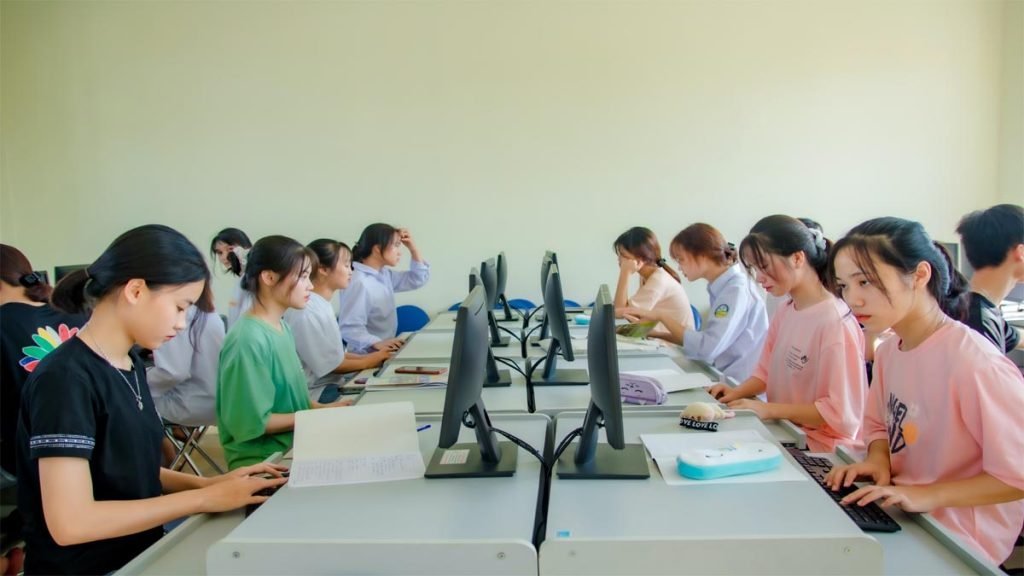The universal language that drives our technical wonders in the quick-paced digital age is code. The surge in its prevalence is undeniable, reflecting its profound importance in shaping our world. This article delves into the landscape of coding education, illuminating its prevalence and crucial role in empowering individuals across diverse domains. With the increasing demand for proficient coders, understanding the value and accessibility of coding education is not just a choice but a necessity in today’s evolving society. Let’s peel back the curtain on this inspiring and transforming foray into the world of coding.
Table of Contents
The Rise of Coding Education
In recent years, the educational landscape has witnessed a noticeable surge in coding education. This upswing is a response to the growing acknowledgment of coding as an essential skill in the contemporary digital age. The ever-expanding demand for professionals proficient in computer science has propelled a transformation in educational structures, leading to the widespread integration of coding in academic curricula.
This shift underscores the necessity of equipping individuals with the expertise to navigate and thrive in a technologically driven world. The accessibility and availability of online resources have further catalyzed this trend, enabling learners of diverse backgrounds to embark on a coding journey and contribute meaningfully to the evolving digital landscape.
The Digital Landscape and Coding
The contemporary digital landscape relies profoundly on technology, shaping every facet of modern life. Coding stands as the fundamental language that empowers this digital realm, allowing the creation of applications, websites, and software vital to your daily interactions.
Understanding and mastering coding enables individuals to effectively navigate and influence this landscape, providing them with a skill set akin to wielding indispensable digital tools. This proficiency facilitates participation and fosters innovation, as individuals can actively contribute and shape the evolving digital narrative, ultimately improving and advancing the world.
Building Problem-Solving Skills
Coding education is a potent vehicle for honing problem-solving skills. By breaking down intricate problems into manageable segments and applying systematic strategies through the use of computer science tools, individuals develop a refined ability to approach challenges. This process nurtures critical thinking and logical reasoning, essential traits transferrable to diverse spheres of life.
Such problem-solving proficiency is foundational in an evolving world, enabling individuals to adeptly navigate complexities and arrive at effective solutions. This empowerment, ingrained through coding education, imbues learners with the confidence to tackle programming challenges and real-world problems with resilience and precision.

Enhancing Creativity and Innovation
Coding is an avenue that significantly enhances creativity and fosters innovation. Beyond the mere lines of code, it is the art of designing and building from an intangible concept. Learning to code equips individuals with the skills to transform abstract ideas into functional, tangible applications, a process that demands creativity and innovation.
Unrestricted creativity can be expressed in this way, which promotes thinking outside of the box. As aspiring coders grasp the nuances of coding, they learn to envision and construct novel solutions, a vital facet of progress in the digital age. This cultivation of creativity and innovation becomes a cornerstone for an enriched and forward-thinking society where individuals are empowered to innovate and lead change.
Bridging the Skills Gap
The demand for individuals proficient in digital tools has surged dramatically, creating a notable gap between job openings and qualified candidates. One of the most important factors in closing this skills gap is coding instruction. By empowering diverse learners with the knowledge and expertise required for coding roles, it addresses the pressing need for skilled programmers.
This strategy enhances the labor market and helps create a more diverse workplace where people from different backgrounds can actively engage and succeed. As coding education becomes increasingly accessible, it serves as a catalyst for a more equitable distribution of opportunities, ultimately strengthening industries and economies while fostering a sense of empowerment and equality among learners.
Universal Access to Coding Education
Access to coding education has increased for people all across the world. The advent of online platforms and coding boot camps has democratized learning, eliminating geographical and financial barriers. Regardless of one’s background or location, these resources offer flexible learning options, allowing anyone with an internet connection to embark on a coding journey.
This accessibility symbolizes a shift towards a more inclusive educational landscape, ensuring that the benefits of coding education are not confined to a select few. As a result, a diverse array of aspiring coders can equip themselves with essential digital tools, amplifying opportunities and empowering them to contribute to a technologically advancing society.
Conclusion
By arming oneself with the understanding of digital tools, you can equip yourself with the ability to navigate the digital world. Recognize that this journey is not only about coding but about honing problem-solving skills, fostering creativity, and bridging the ever-growing skills gap. You stand on the threshold of a world where accessible coding education has the potential to redefine your future and empower you to innovate, create, and contribute to a society thriving on technological advancement.


